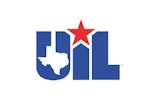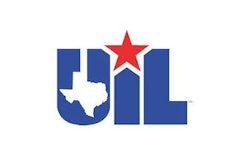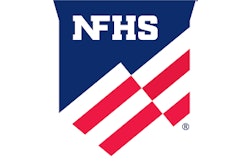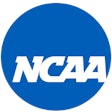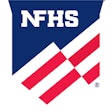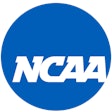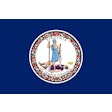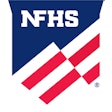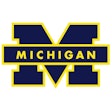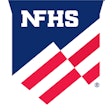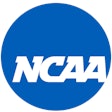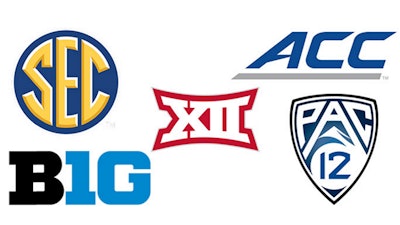
The Power 5 conference commissioners say boosters are inducing high school and transfer athletes to attend their affiliated universities with “payments inaccurately labeled as NIL,” and they are encouraging Congress to make such actions illegal.
In a two-page letter obtained by Sports Illustrated and sent to senators Tommy Tuberville (R-Ala.) and Joe Manchin (D-WV), the most powerful officials in the sport outlined how they believe name, image and likeness rules, loosened by the NCAA little more than a year ago, are being abused by donors and donor-led collectives across the country. The letter is in response to Tuberville and Manchin seeking feedback from stakeholders on the evolution of athlete compensation through NIL, according to Ross Dellenger of SI, who adds the senators announced earlier this month that they plan to draft an NIL-related bill.
In their letter, the commissioners of the SEC, Big Ten, ACC, Pac-12 and Big 12 detail six “pillars” that they say are integral to federal legislation. They include (1) having a national standard allowing all athletes to earn compensation from third parties; (2) prohibiting pay-for-play as well as outlawing booster involvement in recruiting; (3) providing protections for athletes, including assurances that agents “are subject to meaningful regulation”; (4) banning third parties or agents from obtaining “long term rights” of an athlete’s NIL; (5) requiring deals to commensurate with market rates for NIL activity; and (6) requiring athletes to disclose NIL deals to their university.
“Problems have emerged where it appears boosters are inducing high school and potential transfer student-athletes to attend their favored universities with payments inaccurately labeled as NIL licenses, with no connection to the value of any endorsement or NIL activity,” the letter reads. “This kind of inducement was not what anyone had in mind when NIL was created, and federal legislation sponsored by members of both parties sought to prohibit the use of NIL as a recruiting inducement.”
Tuberville and Manchin received several responses from stakeholders over their call for feedback, including those from the Knight Commission and the National College Players Association.
According to Dellenger, many believe NIL legislation, whenever it is finally drafted, is a long shot to pass in a divided Congress. Since 2019, at least eight federal NIL bills have been filed, including proposals from Democrat senaotrs. Chris Murphy, Cory Booker and Richard Blumenthal, as well as Republican senators Jerry Moran and Roger Wicker, SI reported.
Despite more than a half-dozen Congressional hearings on the topic, NIL proposals in both the House and the Senate have failed to gain enough support to move through either body. In the past, Republicans and Democrats have disagreed on both the scope (broad vs. narrow) and concepts (permissive vs. restrictive) of an NIL bill, according to Dellenger.
Conservatives have wanted more narrow legislation that focuses exclusively on NIL and includes athlete restrictions and antitrust protections for the NCAA. Liberals have targeted a broad bill that encompasses athlete healthcare, lifetime scholarships, even revenue sharing and collective bargaining and provides athletes with more freedoms in NIL ventures.
Democrats and Republicans came the closest to a compromise last summer, when senator Maria Cantwell (D-Wash.), the chair of the powerful Senate Commerce Committee, and Wicker proffered bipartisan legislation that ultimately failed. The two sides could not agree on several provisions, most notably athlete long-term healthcare.
As Dellenger reported, this November’s midterm elections could change the balance of power in a Democrat-controlled Congress. Most within college sports believe that a Republican-controlled Senate would create a more simple path to the passage of NIL legislation. A narrow bill, they say, has an easier shot at passage.
Meanwhile, coaches and high-level administrators have repeatedly and loudly called for Congress to create a federal NIL solution to override what Dellenger calls "a bevy of state laws that, quite literally, have schools operating by different rules." NIL rules are inconsistent, and enforcement is somewhat non-existent, officials say, resulting in what they believe is a festering problem: the involvement of boosters.
Though NIL state laws do not vary greatly, some of them have been amended to allow coaching staffs and administrators more freedom in the facilitation of NIL ventures. Other states, such as Alabama, have entirely rescinded their state law, giving universities in that state more liberties as long as they stay within the NCAA’s vague guidelines released last summer, SI reported.
“The pace of change in college athletics today is swift, and we realize some members of Congress want to address issues beyond NIL,” the Power 5 letter concludes. “We are ready to engage in those conversations, including the need to preserve the advantages college athletes enjoy as students instead of being in the different role of employees. But with one year of NIL behind us, and both its peril and promise obvious, and its impact on recruiting undeniable, we believe creating a fair and enforceable framework for true NIL is a good, and needed, step we should take right now.”














